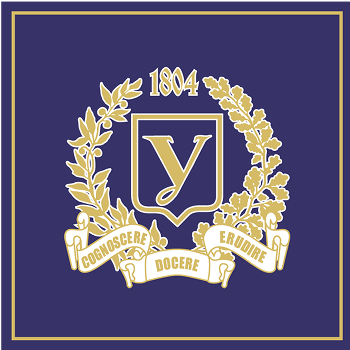Titenko G. V.
- 2019-32
Erasmus+ Project «Integrated Doctoral Program For Environmental Policy, Management And Technology – Intense»: Progress Information And Planned Activity
One of the key planned outcomes of Erasmus+ project “Integrated Doctoral Program for Environmental Policy, Management and Technology – INTENSE” is development of Massive Open Online Courses (MOOCs)
- 2018-30
About the Soil Conservation Information, Ethics and Ethical Standards
The purpose − to define some moral standards of ethical behaviour as a basis of rational use and soil protection. A careful altitude to soil, an ecological imperative - internal need of the head, the land user and the scientist. In mutual relations «state-land user» the actions harming of soil should be excluded. Questions are dis-cussed how to help the land user to use the information directed on soil preservation, how to reach profitableness of the agricultural enterprise, not having disturbed quality почв, what actions the state that soil-saving recommendations of scientists have found the way in practice, that is more important productive or ecological of soil functions should carry out. A compulsorily-incentive principle of the attitude of the state to the land user and subsidizing of agricultural activity should become the main things in soil-saving strategy of the state.
- 2017-1-2-:27
Approaches to the solution of solid waste disposal in the system of ecological management of territories
Modern environmental management system should be based not on generalized criteria and indicators included in the statistical database, and the individual characteristics of each locality as a separate socio-economic and environmental object relations "city-suburban zone." In this case, solving local environmental problems will be most effective. Purpose. To develop a system of indicators for solving the problem of solid waste disposal in the system of ecological management of territories. Results. According to the social criteria, the following indicators and characteristics of the locality are proposed: the population, the number of able-bodied population, the number of people actually working, the number of people working directly at their place of residence, the number of people working in the central cities, the number of educational and educational institutions, and Social institutions, availability of administrative management. The economic criteria include: the state of the road transport system, the commercial and industrial complex, the development of the settlement, recreation areas, artificial lighting of the settlement, housing and communal services. Among the natural factors that are used as criteria: the distance from the city center; Adjacent distance; Girder-beam system; The presence of water objects; Main environmental problems; Availability of territories and objects of the nature reserve fund; Land occupied by agriculture. Conclusions. Provided that it is properly created and implemented, the system will be separately (individually) developed by the system Ecological management of the territory, which includes all the current and actual indicators and criteria for a separate settlement.
- 2016-1-2-:25
Features Of Environmental Ngo’s In Ukrainian Society
Purpose. Investigate public confidence to environmental NGOs in Ukraine. Methods. Formalized interview, processing of sociological data. Results. The respondents trust environmental information from environmental NGOs more than information from local authorities. Conclusions. The urgent need is to spread information about the environment within Ukrainian society..
Ключові слова:
- 2014-1-2-:21
Geographic information systems as the basis of modern soil mapping
The ways of improvement of method of the soil drawing a map are offered due to the use of geoinformation technologies. The results of the remote sensing data and digital elevation model combined using for large-scale soil mapping are presented. The integral decoding of this information is considerably improving quality of the created soil maps.

